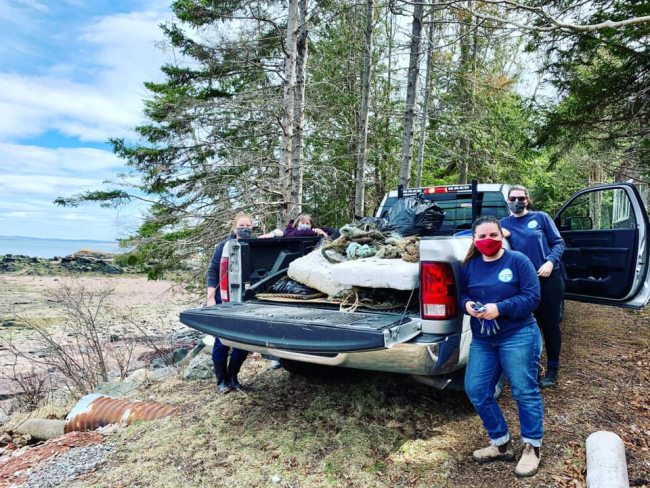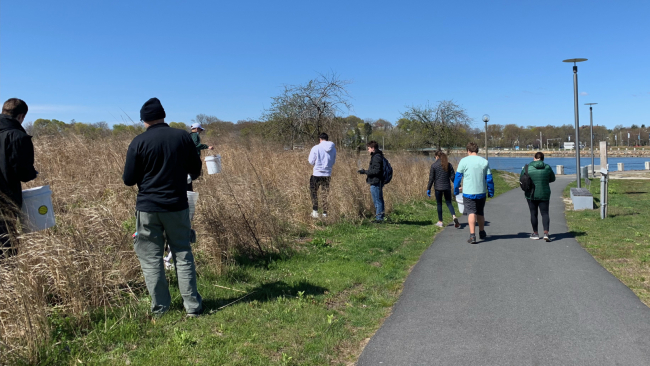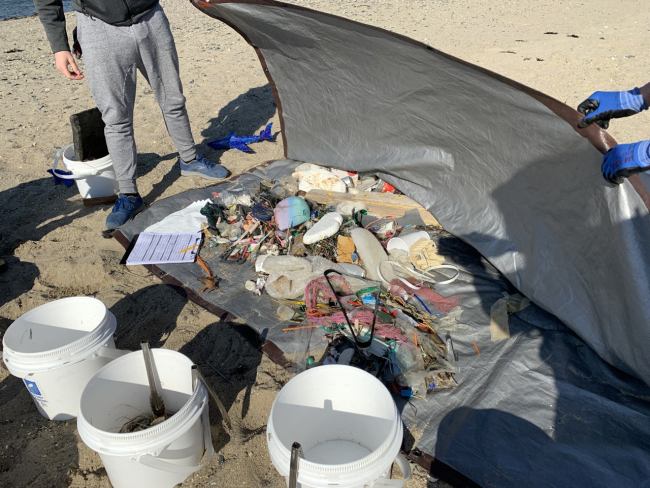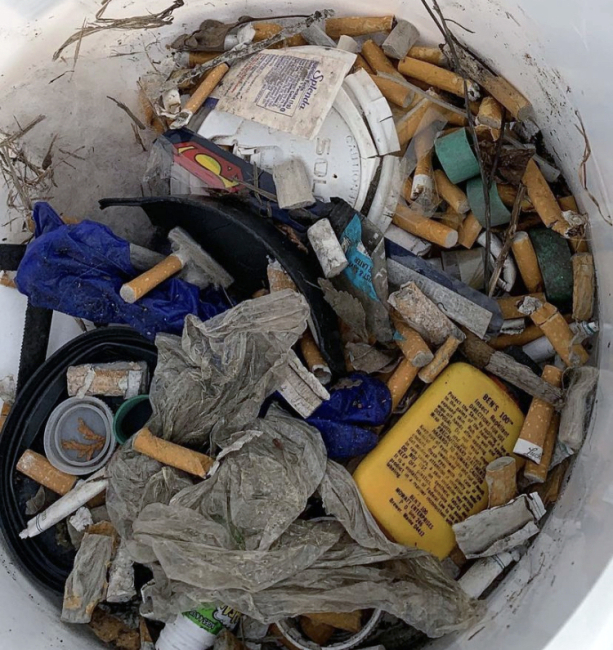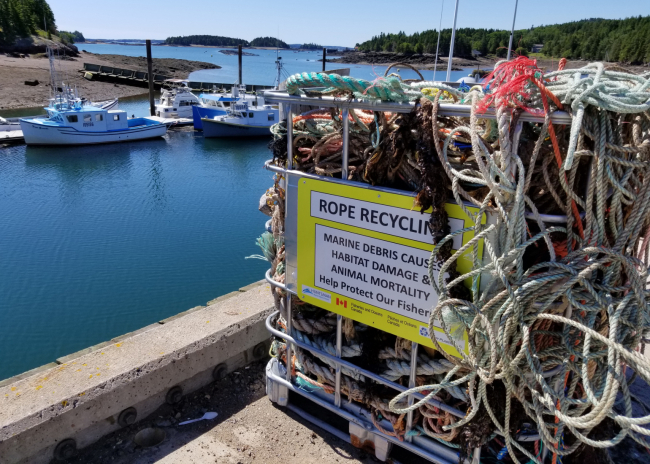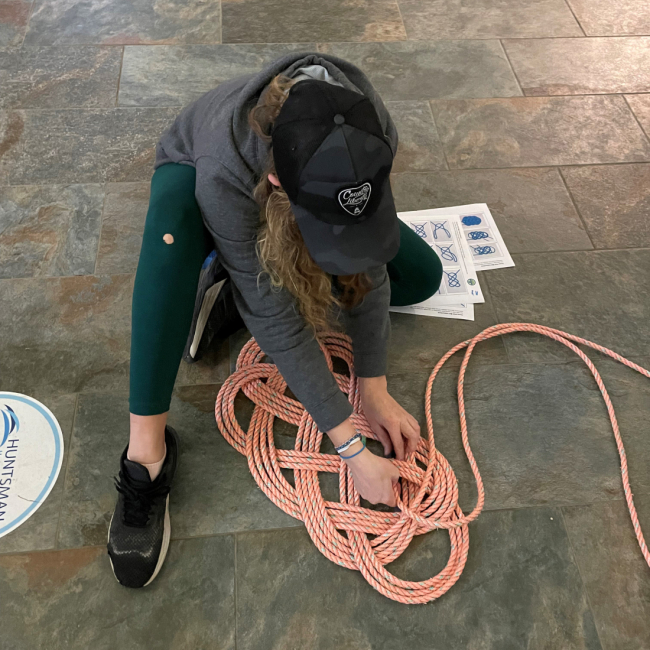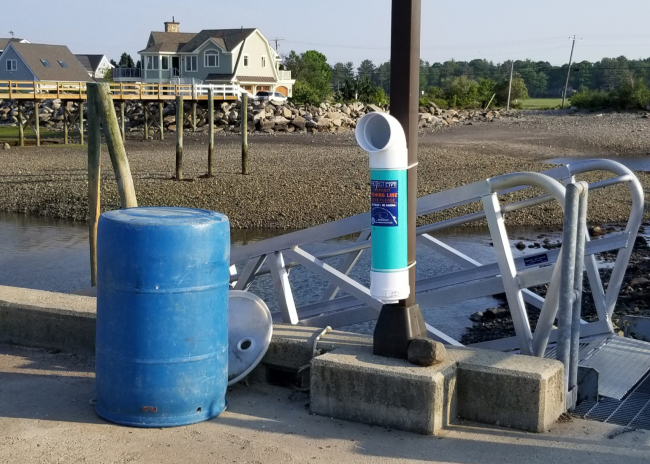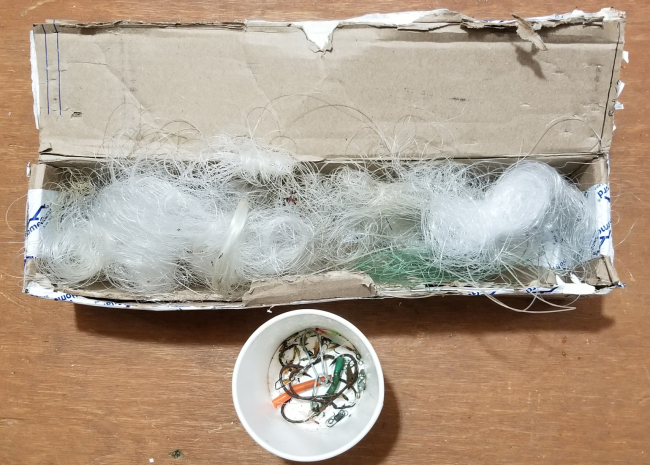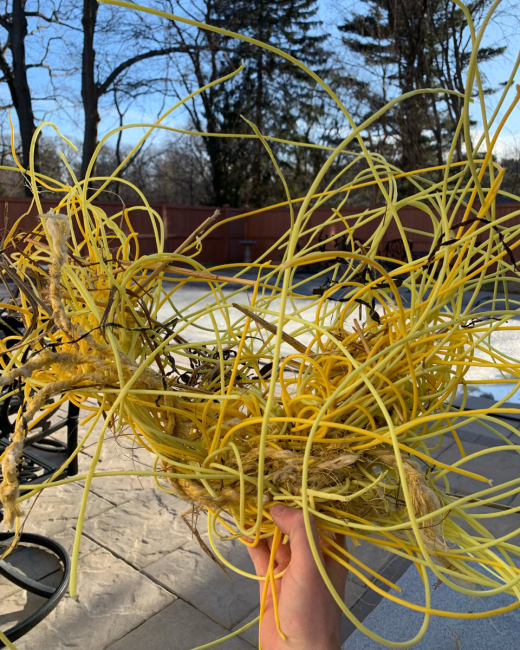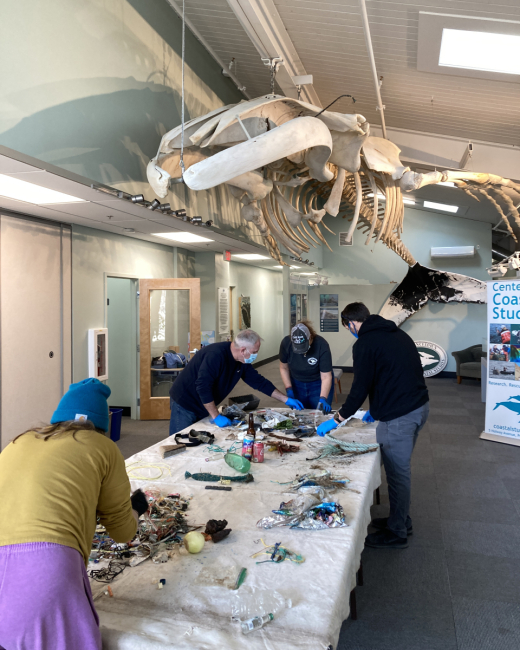Guest blog by: Joan LeBlanc, Gulf of Maine Association / Gulf of Maine Council
The Gulf of Maine, which extends from the Bay of Fundy to Cape Cod Bay, is one of the most dynamic and productive marine ecosystems in the world. With its unique coastal habitats and rich waters, the region supports a variety of wildlife from migratory shorebirds to fish, shellfish, and marine mammals. It also provides valuable economic, cultural, and recreational opportunities for people who call the Gulf of Maine home. Unfortunately, marine debris from human-made materials, such as plastics and derelict fishing gear, can damage ocean and coastal habitat and harm wildlife through entanglement and ingestion.
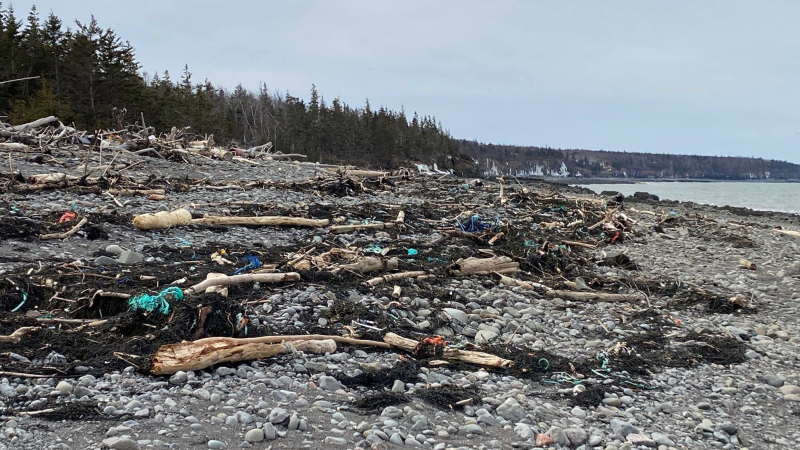
Partners from the U.S. and Canada have teamed up to tackle the environmental problem of marine debris in New Brunswick, Nova Scotia, Maine, New Hampshire, and Massachusetts. With support from the NOAA Marine Debris Program, the Gulf of Maine Association and their partners are working with the five jurisdictions bordering the Gulf of Maine to prevent marine debris from entering coastal waters. Working with NOAA and other partners to advance the Gulf of Maine Marine Debris Action Plan is central to this effort.
Since last fall, the team has conducted 126 coastal cleanups, engaged 816 volunteers, removed 8,471 pounds of coastal debris, and collected 5,500 pounds of discarded fishing rope. In addition to cleanups and marine debris tracking, they also hosted outreach programs and engaged businesses, government agencies, students, recreational users, industry, and community partners in addressing marine debris throughout the Gulf of Maine. In December, the team joined the Gulf of Maine Council for an international forum to share strategies and identify opportunities for collaboration with partners from the U.S. and Canada.
The team’s collective efforts to prevent plastics, discarded fishing gear, and other sources of debris from entering Gulf of Maine waters are crucial for protecting marine life. Surfrider Foundation is collaborating with industry partners to reduce plastics at their source, and has designated several Ocean Friendly Restaurants for taking action to reduce single-use plastics. To promote reuse of discarded fishing ropes, Huntsman Marine Science Centre is collecting the rope and teaching people how to weave mats and other decorative products to keep this source of marine debris out of the waste stream. Blue Ocean Society for Marine Conservation is expanding their Adopt-a-Beach Program while also taking the lead on collecting and recycling monofilament fishing line, which poses a significant risk of injury and entanglement for birds, fish, and marine mammals. Earlier this year, Urban Harbors Institute and the Gulf of Maine Association partnered with the Bay State Harbormasters Association to raise awareness about marine debris prevention among 3,435 recreational boaters during the 2022 New England Boat Show.
The value of this international collaboration was highlighted this winter when unusual yellow plastic tubing began showing up on coastlines from Massachusetts to Nova Scotia. The Center for Coastal Studies coordinated research and tracking to identify the source of this debris as explosive shock tubing used during blasting for harbor dredging. Regional teamwork proved invaluable for mobilizing quick communications and engaging all project partners in conducting cleanups and collecting data across the Gulf of Maine. These efforts also raised awareness about this new source of marine debris, which federal agencies are now working to address.
While there is still much work to be done, this project is proof that international collaboration among government agencies, non-profit organizations, businesses, communities, and volunteers is essential to achieving a debris free Gulf of Maine. For more information visit our project webpage and follow us on Twitter @GOMDebris and with the hashtag #debrisfreegulfofmaine.

